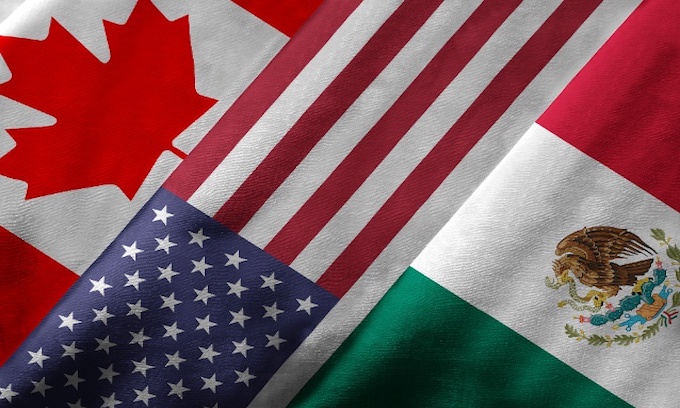As negotiations over NAFTA heat up, liberals and conservatives have begun outlining what they want to see President Trump include in the new deal he strikes with Mexico and Canada.
Liberals say Mr. Trump should follow through on his campaign pledge to make the North American Free Trade Agreement better for workers by requiring signatories to raise their labor standards and improve their environmental rules.
Conservatives, meanwhile, say the president should use his demand for a rewrite of NAFTA as a chance to cut government regulations in the U.S., saying the rules governing congressional approval of trade deals would let Mr. Trump attach GOP priorities to NAFTA without having to face a Democratic filibuster in the Senate.
The demands came as NAFTA negotiations intensified this week.
U.S. Trade Representative Robert E. Lighthizer welcomed Mexican Finance Minister Ildefonso Guajardo, and Canadian Foreign Affairs Minister Chrystia Freeland to Washington for talks, while Mexican Foreign Minister Luis Videgaray met with White House senior adviser Jared Kushner.
And in Canada, Prime Minister Justin Trudeau signaled optimism about the negotiations.
“Right now, we are having a very productive moment,” he said.
The renegotiations were Mr. Trump’s idea. He said Canada and Mexico got a better deal out of NAFTA than the U.S. has, and he has said unless the terms can be improved he will scrap the 25-year-old agreement.
But the rewrite has also created an opportunity for constituencies in the U.S. to demand concessions.
Members of the Congressional Progressive Caucus, a group of the most liberal member of Congress, said Thursday that NAFTA should be reshaped to be more pro-worker and less pro-business.
They said Mr. Trump should write stronger protections for workers into the deal to ensure they are not exploited inside and outside the United States. They also said a new deal must eliminate “special corporate privileges” — specifically the Investor State Dispute Settlement clause that allows foreign companies to sue governments over laws or rules that hurt their investments.
“Any renegotiation of NAFTA must eliminate the incentives for outsourcing jobs, raise wages and level the playing field for American workers,” said Rep. Rosa DeLauro, Connecticut Democrat. “The biggest economic challenge of our time is that too many people are in jobs that do not pay them enough to live on. Bad trade [deals] exasperate that issue.”
Conservative leaders, meanwhile, wrote a letter to Mr. Trump asking him to create a pathway to cut U.S. government regulations as part of NAFTA.
They asked him to slip the Regulations from the Executive in Need of Scrutiny (REINS) Act, which would give Congress a veto over any new major Executive Branch regulations, into a proposed competitiveness chapter of NAFTA.
Under Trade Promotion Authority, Mr. Trump can win approval of trade deals in Congress on simple majority votes, rather than having to overcome a Democratic filibuster. Democrats have signaled they would filibuster the REINS Act if it came up as a standalone, but the conservative leaders said NAFTA would be a workaround.
Timing on completing the negotiations is iffy.
On Thursday, Mr. Trump pumped the brakes on the idea that he was seeking to have a deal in principle that he could unveil at next week’s Summit of the Americas in Lima, Peru.
“I said, ‘Don’t rush it. Take it nice and easy,'” Mr. Trump told a crowd of supporters at an event in West Virginia. “If we don’t have it done right, we’ll terminate it.”
• Stephen Dinan contributed to this report.
© Copyright (c) 2018 News World Communications, Inc.
—-
This content is published through a licensing agreement with Acquire Media using its NewsEdge technology.




















Recent Comments